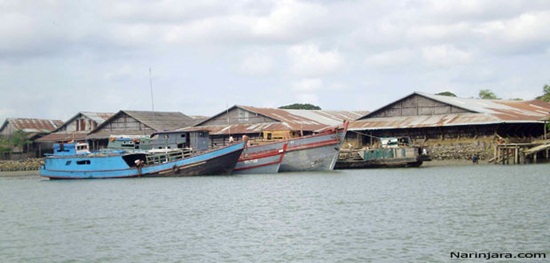A 13 members’ Bangladesh business delegation left for Burma through the Maungdaw- Teknaf border point on Monday to attend a trade meeting which is scheduled to be held in Sittwe, the capital of Arakan, on 29 May 2012, said a businessman on border.

The delegation is led by Sayr Muhamad Nurl, the deputy commissioner of Cox’sbazar district left on Monday from Teknaf, a bordering town with Burma, by machine boats across Naff River.
According to a Business source, a business meeting related to border trade between Burma and Bangladesh is likely to be held in Sittwe on 29 May where delegations from the two countries will discuss bilateral issues on border trade.
Bangladesh Business leaders see bright prospects of importing goods from Burma through non-conventional vessels which will help cut both time and cost, said the source.
The source said Bangladesh will submit a proposal that the goods from Burma be imported quickly with lower transportation costs, this will reduce the prices of goods in the local market.
In the meeting, two delegations are expected to discuss many trade issues especially import and export sectors as well as the banking system between two countries.
The border trade in two neighboring countries is important and the export and import between two countries are doing well through border trade.
According to the Federation of Bangladesh Chambers of Commerce and Industry (FBCCI), Bangladesh’s exports to Burma totaled US$ 9.65 million in fiscal 2010-11 while its imports were worth US$ 175.72 million.
Bangladesh mainly imports agriculture products like rice and nuts , and fish and timber from Burma while its exports to Burma are mainly cement, pharmaceuticals, condensed milk, and electric cables.
Bangladesh has been mainly doing business with it close neighbor Burma through informal channels over the years due to problems in international banking transactions. Even though the volume of bilateral trade is low, the potential is very high.


